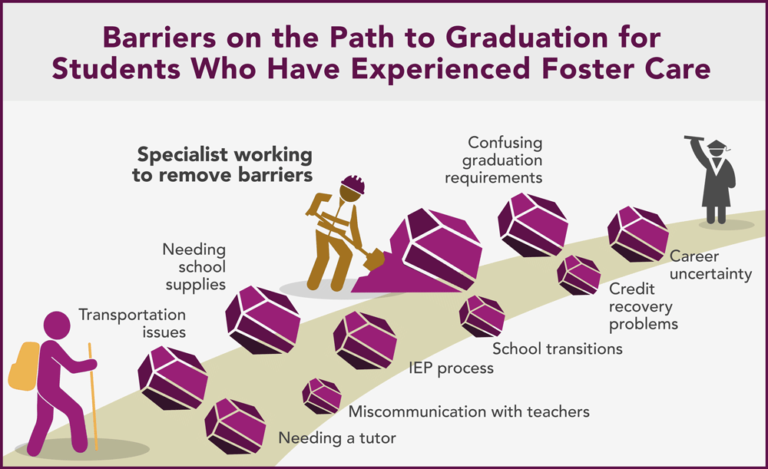Fostering Opportunities: Closing the High School Graduation Gap for Youth Who Experience Foster Care

Only one in four Colorado students who experience foster care during high school graduate with their class. Most interventions aimed at improving the graduation rates of youth who experience foster care are spearheaded by child welfare agencies or the judicial system with services typically ending when students exit the foster care system. Yet there is evidence to suggest that the risk for poor educational outcomes may increase after foster care ends. Fostering Opportunities is different because it is delivered by a school system and continues service until a student graduates or demonstrates sustained academic success.

The Fostering Opportunities program aims to close this graduation gap by better aligning child welfare and education practices. A collaborative effort of Jefferson County Public Schools and Jefferson County Human Services, the Fostering Opportunities program engages “specialists” to check in weekly with students. Specialists are typically employees of a local or state education agency and are not bound to a specific school but instead follow the students. They meet regularly with students, make sure that caregivers and child welfare case workers have timely and accurate information about students’ educational progress, and they work with teachers on trauma-informed approaches to help students be successful in school. This reliable network and personalized supports are designed to help youth who experience foster care stay in school, regularly attend class, and pass their courses.
A new report, Fostering Opportunities: Preliminary Success Measures for a Pay for Success Pilot Program, shares findings of the Colorado Lab’s initial study of the Fostering Opportunities program. Independent evaluations are a requirement of Colorado’s Pay for Success program, which funds pilot programs designed to improve on-time high school graduation rates. This innovative approach shifts the risk from traditional funders – typically a government entity – to private investors, like the Community First Foundation which provided upfront capital for Fostering Opportunities. Only if the evaluation shows that the program meets agreed-upon outcomes does the government funder repay the initial investment.
The Lab’s study found that Fostering Opportunities met the third of four tiers of success measures for the pilot program, despite unprecedented disruptions to schooling caused by the COVID-19 pandemic. These findings suggest that the program holds promise for improving attendance rates and reducing incidents of suspension for students who have experienced foster care during high school. The report also highlights some of the challenges of building evidence for a program during a pandemic and offers insight into how changes in grading policies may have influenced the preliminary outcomes. A second study to gain additional evidence for interventions that can support the academic success of youth who experience foster care is underway and will be reported in late fall 2022. Learn more about the study and see the companion manual, Fostering Opportunities Program Manual – Middle and High School Version.
Agencies participating in this project are the Colorado Governor’s Office (Pay for Success); Colorado Department of Human Services, Division of Child Welfare; Jefferson County School District; Jefferson County Human Services; and Community First Foundation (Pay for Success).
For more information about Fostering Opportunities, contact Dr. Elysia Clemens.